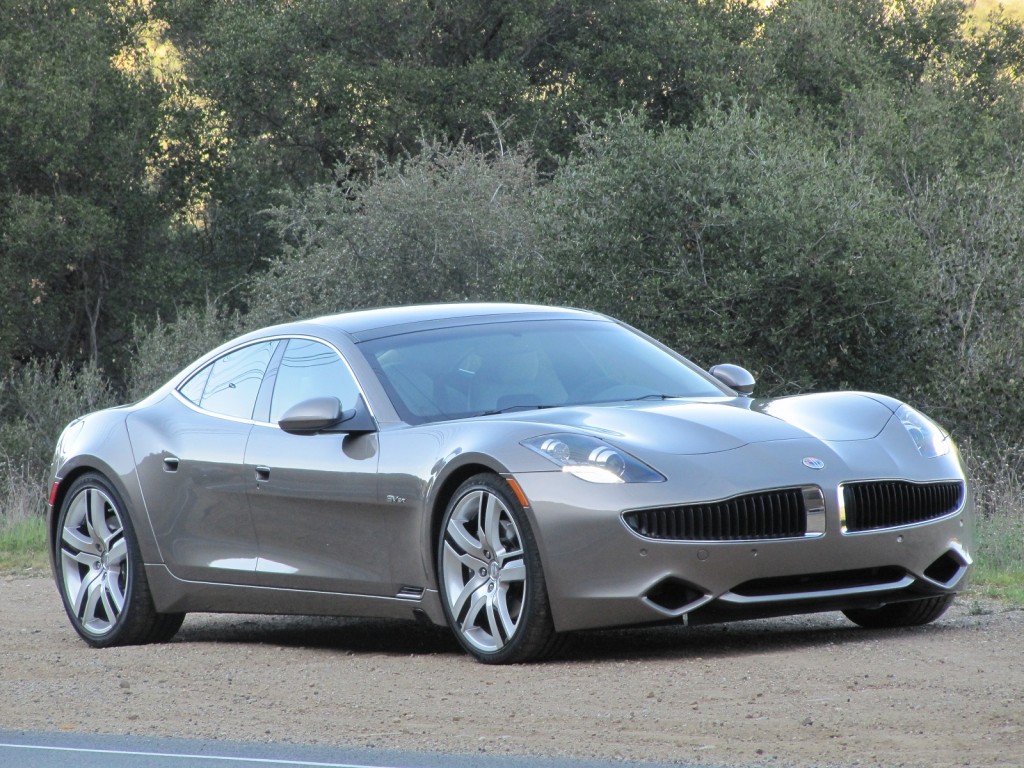Hundreds of recalls a year get announced for gasoline cars, the vast majority completely under the radar.
The high visibility of the electric-car business makes any recalls of batteries different, though.
With that in mind, lithium-ion cell maker A123 Systems [NSDQ:AONE] said this morning it will recall battery modules and packs that contain prismatic cells produced at its Livonia, Michigan, plant that may have a defect that reduces their performance.
Fisker Karma largest user
Those components are used in the 2012 Fisker Karma, among other vehicles, which A123 CEO David Vieau noted is currently the largest single program that uses the prismatic cells from Livonia.
The defect, said Vieau, was discovered only in some cells built at Livonia. The hundreds of thousands of prismatic cells it has built at other plants aren't affected, nor are cylindrical cells it builds in China for transportation and energy-storage applications.
"A small number of packs in the field experienced a defect," said Vieau. The defect was traced to a miscalibration in an automatic welding machine at the plant, which resulted in a misaligned component was not detected visually.
When the cells were compressed, interference could be created although the cells functioned properly at first. A123 says the defect does not cause a safety issue, and has had no reports of any safety concerns in any of the products.
Replacements to ship this week
A123 has already begun building replacement modules and packs, and it expects to begin shipping them this week. It estimated that it would incur costs of $55 million to replace the modules and packs, and said it had sufficient liquidity to fund that effort over the next several quarters.
Vieau noted that the modules and packs ranged from starter batteries to full battery packs. He confirmed that the failure of the battery pack in a 2012 Fisker Karma purchased by Consumer Reports was due to a failed A123 module that would be replaced under the recall program.

2012 Fisker Karma during road test, Los Angeles, Feb 2012
Five transportation customers use potentially defective cells produced at the Livonia facility, though Vieau declined several times to identify the companies identified.
A123's customers include Fisker, Chevrolet, BMW, and other vehicle makers. Vieau noted that the BMW ActiveHybrid 3 and ActiveHybrid 5 models use cylindrical cells built at A123's Chinese plant, and so are not affected by the recall.
A123 said it had hired a chief operating officer, Ed Kopkowski, with more than 25 years of experience in quality improvement and cost reduction.
A123 faces challenges
The recall is particularly unfortunate because the Livonia cell fabrication plant is planned to be one of the largest such facilities in the U.S. It received some funding from the 2008 Recovery Act passed by the Bush Administration.
A123 Systems has had several challenges over the last year. With Fisker Automotive cutting its projected purchase of A123's lithium-ion cells for the delayed 2012 Fisker Karma, the company laid off some employees and cut its financial projections.
The volume of cells it provides to General Motors for the upcoming Chevrolet Spark EV is likely to be low, as only a few thousand of that car will likely be built to meet emission regulations in a small number of states.
Perhaps worrisome for investors and industry analysts, Vieau said A123 would adjust its fundraising strategy to accommodate the $55 million cost of the recall.
"It's certainly not good news," he said, though he pointed to the narrow scope of the issue and the global footprint of the company's several manufacturing plants and product lines.
"We make no excuses and we accept full responsibility for this action," said Vieau, but saying the company was "disappointed and frustrated" by the situation. He added that he believed the company had fully identified the problem and developed a field campaign that addresses it fully.
While the rapid ramp-up of the Livonia facility has "resulted in near-term operational challenges," Vieau said, "we are confident in our ability to overcome these issues."
+++++++++++













